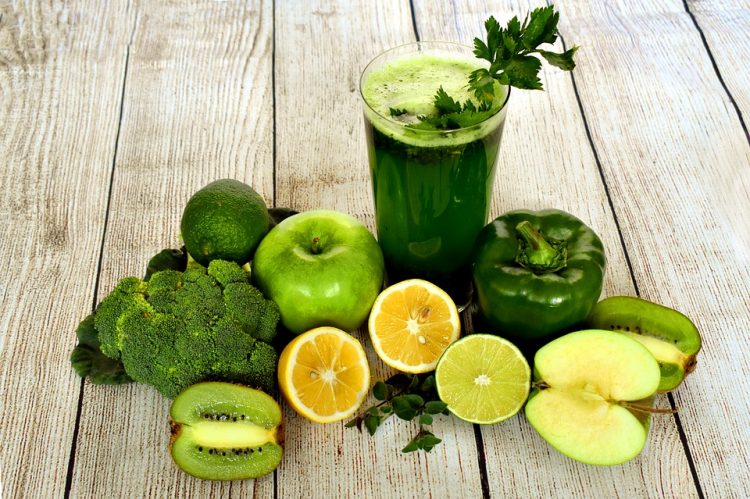Now that you are interested in Good Health and becoming fit? The best way is to combine a sensible diet and exercise program. This will not only aid you in losing weight but also in maintaining your ideal weight.
Most people hesitate and have not started exercising. So, here how do you start? First, let’s look at your eating habits. You will find that by eating a well-balanced diet, your exercise program will also be enhanced. This may not be new, but it’s tried and true. Choose your daily meals from the basic four to be sure you are getting all the essential nutrients.
Food to Fuel the Body for Good Health
-
PROTEIN GROUP – Lean meat, fish, poultry, eggs, and/or alternate vegetable proteins such as dried beans, peas, and nuts – 2 servings per day.
-
DAIRY GROUP – Milk and milk products such as cheese. For fewer calories and less saturated fat, choose low-fat or skim milk products — 2 servings per day.
-
FRUIT AND VEGETABLE GROUP- Citrus fruits will provide Vitamin C and dark green leafy and/or yellow vegetables will supply Vitamin A – 4 or more servings per day.
-
WHOLE GRAIN Bread AND CEREALS GROUP – Bread, cereals, pasta, and rice are included in 4 or more servings per day.
Energy providers
-
CARBOHYDRATES: The most efficient source of energy for the body. Each gram of this nutrient contains 4 calories.
-
FATS: Used as a carrier of Vitamins A, D, E, and K and is a concentrated storage source of energy. Fat provides twice the number of calories as the other nutrients.
-
PROTEINS: Used for the growth and repair of body tissues. It also contributes to the body’s energy needs but is less efficient than fats and carbohydrates.
-
VITAMINS AND MINERALS: These do not con¬ tribute to our energy needs but are important as body regulators and in utilizing carbohydrates, protein, and fat.
-
IMPORTANT NOTE: All the above are essential and needed every day to maintain optimum body efficiency. As studies have shown, “fad diets” are not nutritionally sound, and any diet program should be discussed with your physician.
Waterman’s Essential Nutrient:
Used as a medium to carry nutrients to cells, maintains body temperature, and eliminate waste. As a rule of thumb, do not depend on thirst as a mechanism for your need for water. Strenuous activity can increase your water loss and may lead to dehydration. Therefore, fluid replacement, primarily water, should be a basic component of any exercise program or diet.
How Many Calories do you Need?
An easy formula for determining the number of calories needed by an adult is to take his/her ideal weight and multiply by 15. For example, if you wish to weigh 120 pounds, the number of calories needed per day to maintain that weight is 120 X 15 = 1800 calories. But, to lose one pound, you must create a deficit of 3500 calories.
So, by reducing your daily intake by 500 calories and maintaining your normal activity level, in 7 days (7 X 500 = 3500) you can lose one pound. The same is true for increasing your activity/exercise level by 500 calories and maintaining your normal diet. The rate of one pound of weight loss per week is safe and is more likely to result in long-term success than crash dieting. Remember, you can’t cheat on your calories; be aware of your portion sizes.
Exercise is an Equally Important Factor in Fitness
Basic Tips:
-
So, get ready and start slowly!
-
If you are over 30, check with your physician about your readiness for increased physical activity. But a slow walk makes you feel better in a few days to move quickly.
Endurance Activities
Keep in mind that regular exercise strengthens the heart, and improves muscular power, endurance, flexibility, and coordination. But remember, the heart is a muscle and regular moderate activity will strengthen it. Walking, jogging, swimming, and bicycling are all excellent endurance activities and will improve one’s overall cardiovascular conditioning and blood circulation.
The Three Components of a Good Exercise Program
-
Warm-Up – Before starting your activity you need to spend at least five to ten minutes stretching, bending, and loosening up. Muscles and joints function more effectively when warmed up and have less chance of injury. It also helps raise the heart rate slowly and gradually to adjust to the activity.
-
Stimulus Period – Keep continuing to exercise of suggested choice sustained for 20 to 30 minutes.
-
Cool Down – Don’t sit down after exercising! It is important to keep the blood moving after the stimulus period. Body movement such as an easy short walk will help promote blood return to the heart and allow body temperature to be lowered before returning to daily activities. Light stretching should come after the cool-down period.
Minimum Requirements for Improving Cardio-Vascular Fitness & Weight Control
-
First, you need to keep your mind getting ready for 20-30 minutes of exercise.
-
Exercise at least 3 times per week (preferably every other day).
-
Moderate intensity to raise the heart rate to about 60-85% of the maximum heart rate for age.
Other tips for Good Health:
-
Select activities that you really enjoy (don’t pick running if you don’t like to run!).
-
Combine several different endurance activities during the week if you feel you might be bored; i.e. swim on Monday, jog on Wednesday, and play tennis on Friday.
-
Exercise with a friend, if preferred. Sometimes friendly peer pressure can help you to continue your program.
Some Common Concerns About Good Health
I am already too busy. How can I add exercise to my schedule? These days, everybody is overburdened. You’re the only one, to decide to keep the schedule alter to fit yourself. No compromise on good health and fitness.
If you’re fit, you can climb K2, if you’re not fit you can’t take a glass of water. So, in this brutal world, no one will take you. In the end, you must take yourself. No friend, the relative will come ahead to take you. So, get out this rubbish thought from your mind and make a daily schedule if possible.
As old age goes, you can do anything you really want to do. A minimum exercise program of 30 minutes, 3 times a week can be accommodated by almost anyone. It does not matter if you exercise early in the morning, at lunchtime, or at night,
if you are consistent in your exercise habits. However, if you exercise before your largest meal, you may find this will decrease your appetite. I just want to lose weight; exercise will make me hungry.
Research has shown that active individuals generally eat less than sedentary individuals. Although low-energy-releasing exercise, such as walking at a slow pace, may increase your appetite, endurance exercise such as jogging is an appetite depressant for most people. Therefore, the more strenuous the exercise, the less hungry you feel.
Why should I be concerned about fitness?
I feel fine. While you may feel fine, you may not have the energy level you could have if you made regular exercise a daily habit. Furthermore, exercise has been shown to be helpful in reducing the risk of heart disease, the silent killer.
People tend to gain weight as they get older, becoming fatter and less muscular. These factors contribute to decreased mobility, which is a concern at any age. Also, because the Basal Metabolic Rate may decrease after age 30 maintenance of your ideal weight requires fewer calories and continued activity.
You alone can control the factors which will keep your body in shape. By incorporating good nutrition habits and regular exercise into your lifestyle, you will be giving yourself the chance to look and feel your best. So, finally gaining Good Health without exercise and nutrition cannot be possible. You have to work hard for a work-life balance.
Read More – Finding Perfect Health Through Harmonious Eating

Recommended Products
- Crush Food Craving with Odd Water Hack
- YogaBurn Fitness System for Women to Live Healthy Life
- Eat Sleep burn and enjoy The deep rejuvenating sleep and a return to total health
- Secrets of Apple Cider Vinegar for Weight Loss and Skin Care Treatment
- Best Fat Burning Soup Recipes






